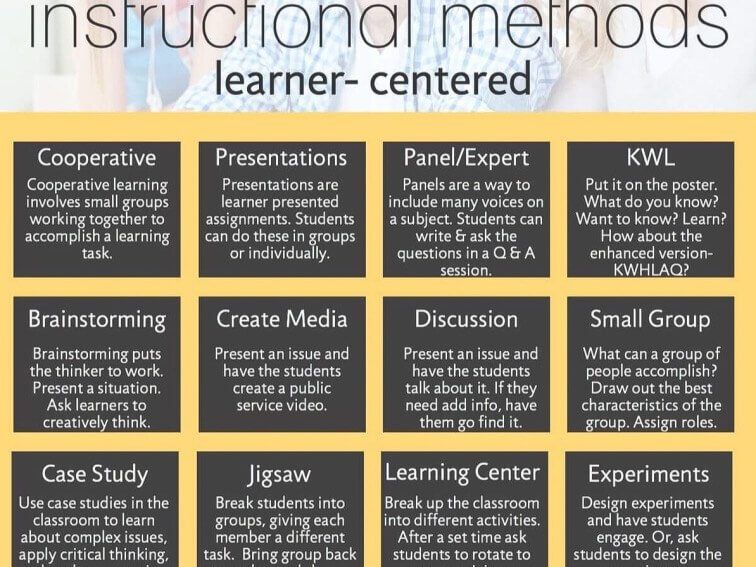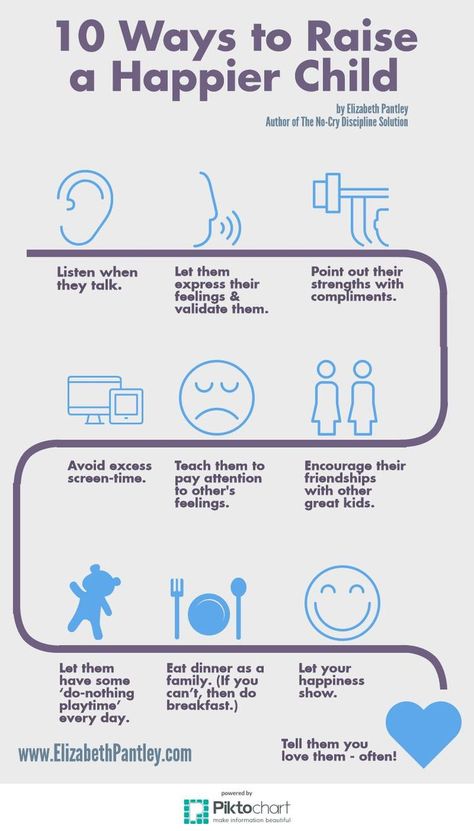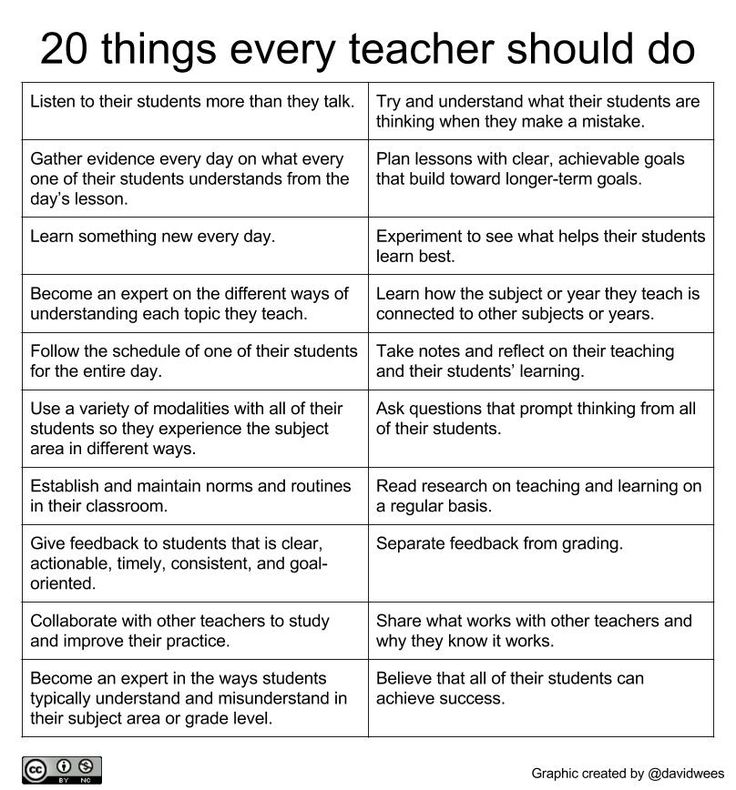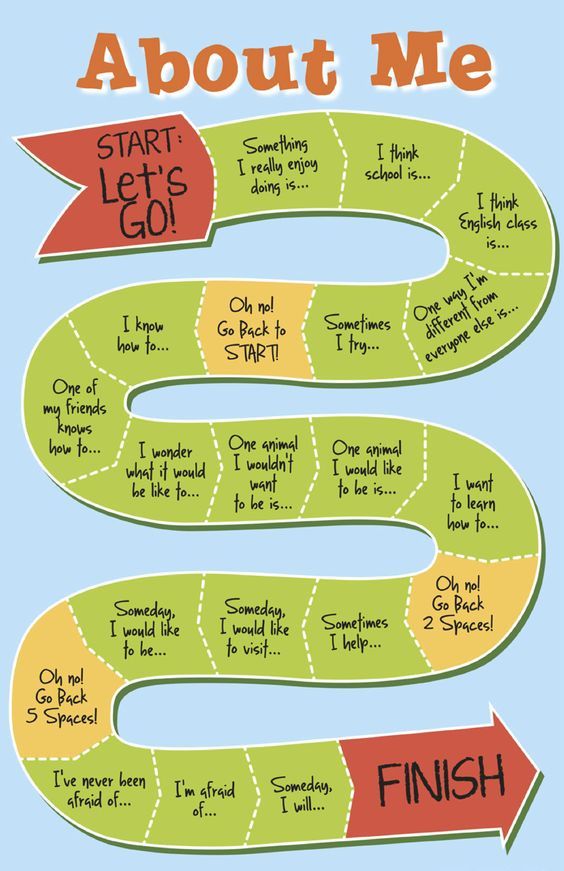How to make your child study without anyone telling them
Stop Telling Your Kids to Study Hard for Their Own Good
Yes, it is for your kids’ own good that they study hard.
But you shouldn’t tell them that.
Why not?
Because if you do, they’ll be less likely to study hard.
(I’ve spoken to and worked with more than 20,000 students, so I say this with confidence.)
In this article, I’ll provide an explanation.
I’ll also share three tips to help your kids develop intrinsic motivation.
FREE E-BOOK:
The e-book has already been downloaded by
many thousands of parents, so don't miss out!
Don’t expect your kids to get an education in school
This might sound strange, so hear me out.
We live in a world where knowledge abounds.
It’s incredible that most of this knowledge is available for free online – you just have to seek it out.
A couple of decades ago, to get an education you had almost no choice but to attend school.
But today, you can take courses on Khan Academy, Coursera, Udacity, Udemy, and other websites.
If you’re diligent about taking these courses, you’d acquire more skills and knowledge than you would in almost any traditional school.
This means that, over time, the diplomas and degrees that schools give out will matter less.
It also means that students shouldn’t go to school expecting to get an education. Rather, school should form just one part of a student’s education.
In the future, diplomas and degrees won’t be the ticket to a well-paying job and a comfortable life. (This is already starting to be the case.)
But for now, such certificates still matter.
Statistics show that students who perform better in school are more likely to get jobs that pay better.
And students who study hard are obviously more likely to perform well in school.
Which means that if you want to motivate your kids, you should tell them to work hard in school for their own benefit, right?
Wrong.
Allow me to explain.
3 reasons it’s ineffective to tell your kids to study hard for their own good
Reason #1: Students today aren’t hungry for a “better life”
In developed countries today, most children and teenagers have more material things than they need.
More toys than they need.
More shoes than they need.
More clothes than they need.
More electronic devices than they need.
In contrast, one or two generations ago, most people experienced real hardship.
For example, my parents and grandparents grew up with far less (materially speaking) than I did.
From an early age, it was obvious to my parents that if they wanted to have a more comfortable life in the future, they needed to work hard in school.
Their teachers and parents told them that education was the key to success – and in that era, it was true.
Today, young people already lead lives of comfort, if not luxury.
Not all of them realise this, but some do.
For example, I know a student who dropped out of school at the age of 14 because she hated everything about school.
No matter what her parents said, she refused to go to school.
In a moment of reflection, she said, “You know, I’m not doing anything productive with my life. But my life is still pretty good. I have a smartphone, I have access to the Internet, I have a nice bed to sleep in, and I have air conditioning at home.”
If you live in a developed country, I’m guessing that your kids experience a similar level of material comfort as this 14-year-old girl.
Children and teenagers can’t imagine life without these comforts.
As such, they subconsciously assume that their life will continue to be comfortable, regardless of how hard they try in school.
I’ve worked with a few unmotivated teenagers who said to me: “I’ve already calculated how much my inheritance will be. I don’t think I’ll need to work a day in my life.”
I was in disbelief when I heard this.
It was almost as if these students were wishing death upon their parents so they could get their inheritance!
But it just goes to show that many young people assume they won’t need to work hard to maintain their current standard of living.
Because they’ve grown up with so much, they don’t feel the need to work hard so they can own even more “nice” things. They already own plenty of nice things!
This means that the desire to achieve more doesn’t motivate them to study hard in the same way it motivated people one or two generations ago.
This is the first reason why telling your kids to study hard so they can have a “better life” isn’t effective.
Reason #2: Students desperately want to feel as if their lives are significant, but studying doesn’t help them to feel this way
Through my interactions with thousands of students around the world, I’ve come to realise that they all want to feel as if they’re contributing.
When they feel as if they’re contributing, they also feel as if their lives are significant. This is an observation that’s backed up by research.
This, in turn, enables them to be more motivated and purpose-driven overall.
What does this have to do with studying hard?
Plenty.
The direct message students receive in school is that they should study hard to get good grades, so that they’ll be able to get a good job, so that they’ll be able to enjoy a comfortable life (which they are probably already enjoying).
The indirect message students receive is that they won’t make a real contribution until after they’ve completed their formal education.
What’s more, schools tend to emphasise achievement, both in academics and other activities.
But what young people crave is a sense that they’re contributing, that their lives are useful to others.
Students say to me, “If I study hard, I get A’s. If I don’t study hard, I get D’s. Either way, nothing about the world really changes.”
Either way, nothing about the world really changes.”
This statement bears more truth than parents and educators would like to admit.
It highlights the fact that students want to make an impact, no matter their age.
When they don’t have this sense of significance, they turn to social media and games.
Through these platforms, they can build a following, get “likes”, gain admiration for their looks and abilities, and “level up” their characters.
They get a real sense of significance and achievement in the online world, which they might not be able to get in the real world.
Social media and games are entertaining, but they also serve to help young people meet their real needs in a virtual way.
This is a big reason why millions of students around the world are so addicted to social media and games.
In summary, there’s no point telling your kids to study hard for their own good. This is because studying doesn’t give them the sense of significance they so desperately want and need.
Reason #3: The rewards of studying hard are too far in the future
As mentioned earlier, schools tell students the story that they should study hard and do their homework, so they can eventually get a diploma or degree. Thereafter, they can get a well-paying job.
To students, this isn’t an inspiring story.
In addition, for many students, they’re only likely to complete their schooling in 5, 10 or 15 years.
If you ask children or teenagers to wait just one year to get a new phone or game or pet, that already seems like an eternity to them.
But we’re expecting students to work hard in school for the next 5, 10 or 15 years because of the reward they’ll get at the end of the journey?
That’s not going to happen – especially not when young people are growing up in an age of instant gratification.
Even the least motivated students I’ve worked with understand that it’s for their own good that they study hard.
But the benefits that students will reap are too far down the road to keep them motivated.
3 tips to help your kids become self-motivated students
Now that we’ve talked about the three reasons why you shouldn’t tell your kids to study hard for their own good, it’s now time to talk about the alternative approaches that work.
Here are three tips to help your kids develop intrinsic motivation:
Tip #1: Focus more on contribution and less on achievement
One important purpose of education is to equip students with the knowledge and skills so they can make a contribution.
Contribution is the foundation of a meaningful life and of intrinsic motivation.
That’s why it’s especially unfortunate that students rarely think about how they can contribute.
Instead, they’re continually thinking about what they want to – or are “supposed” to – achieve. This leaves them feeling unmotivated and uninspired.
What’s the alternative?
To emphasise contribution above achievement.
Do this in the way you speak to your kids about what goes on in their lives.
Help them to see that there are always ways in which they can help and serve others.
Take practical steps to communicate this message too.
For example, as a family you could get involved in a fortnightly or monthly volunteering activity, such as:
- Helping out at a soup kitchen
- Tutoring younger children
- Doing charity work
I’ve found that students who engage in such activities voluntarily at least a couple of times a month become more aware of their responsibilities toward others.
This helps them to adopt a more positive mindset when it comes to fulfilling their responsibilities as a student.
There’s no point forcing your kids to volunteer if they refuse to, but you can always start by setting a good example for them.
Even at home, there are many ways for your kids to contribute.
For example, they can…
- Help out with chores
- Cook a simple meal for the family once a week
- Plan family celebrations
- Suggest the itinerary for an upcoming family vacation
Overall, I encourage you to move away from the idea that students should only focus on their studies.
If students lead balanced lives that are centred on others, their motivation to acquire knowledge for the benefit of others will increase as well.
Tip #2: Focus more on the process and less on the outcome
Instead of asking your kids what grades they’re getting, turn your attention toward the process by asking questions such as:
- “What did you try hard at?”
- “What risks did you take?”
- “What did you fail at?”
- “What challenges did you face?”
- “What will you do differently next time?”
Share with your kids the challenges you face, and what you’re doing to overcome those challenges.
This approach will remind your kids that the process is what matters, not the outcome.
Emphasise to them that grades are just a form of feedback, and that grades are never an end in themselves.
As the research shows, students who embrace this mindset are more likely to be successful in school and beyond.
Tip #3: Create a culture of learning at home
As a parent, you’re the leader of the home.
Your kids are watching you, so if you lead by example they’ll be more likely to develop a positive learning attitude.
Periodically share with your kids…
- What books you’ve been reading (here are my recommendations for the best books for students)
- What documentaries you’ve been watching
- What courses you’ve been taking
- What challenges you’ve been facing in your personal and professional life
- What fears you’ve been overcoming
- What skills you’ve been learning
- What character traits you’ve been developing
If you do this in a non-preachy way, your kids will internalise the message that learning is fun.
More importantly, they’ll understand that getting better is its own reward.
And when they believe this for themselves, they’ll study hard because they’ll enjoy the process of learning and improving.
Conclusion
As we wrap up, take a minute to think about the long-term goals you have for your kids.
These goals are probably aligned with many – if not all – of the following statements:
- I want them to be kind
- I want them to be courageous
- I want them to be generous
- I want them to be resilient
- I want them to be grateful
- I want them to be trustworthy
- I want them to be respectful
- I want them to be people of integrity
- I want them to love learning
- I want them to find fulfilment
- I want them to be passionate about serving and helping others
- I want them to build meaningful relationships
- I want them to contribute to their communities
- I want them to lead lives of purpose
Yet somewhere along the way, you may have lost sight of these goals. You may have started to focus on what’s urgent, instead of what’s important.
(As a parent myself, I know it’s so easy to!)
It’s natural for parents to want their kids to perform well in school.
But I encourage you to aim higher than just getting your kids to study hard.
By applying Tips #1, #2 and #3, your kids will be more likely to head down the path of becoming people of character, contribution and commitment.
Then you won’t even need to remind them to study hard!
This transformational journey will take effort – both from you and your kids – but it’ll be worth it.
Like this article? Please share it with your friends.
FREE E-BOOK:
The e-book has already been downloaded by
many thousands of parents, so don't miss out!
How to encourage good study habits without nagging – SheKnows
Skip to main content Skip to header navigation
Let’s face it — kids dislike homework. They would probably procrastinate indefinitely if a parent didn’t intervene.
Related story What is Sub Drop & Top Drop? Mood Shifts After Intense Sex Aren’t Uncommon
Avoid homework harassment
The only problem is that our intervening can quickly develop into nagging and even yelling, both of which seldom have the desired outcome.
Parents want their children to learn and develop the necessary study skills for success, but so often our well-intended efforts end in mutual frustration and arguing. If homework time is making your child cranky — and turning you into a homework nag — try a few of these tips.
Make an attitude adjustment
Chances are you as the parent dislike and dread homework almost as much as your child! Homework battles can simply elevate these pre-existing attitudes. Remind yourself that homework isn’t something annoying to check off the list, but a way for your child to practice and learn new skills. This doesn’t just help them to pass a test, but also helps them succeed beyond academics.
This doesn’t just help them to pass a test, but also helps them succeed beyond academics.
Identify the problem
Is the problem with homework motivational or does your child actually lack the specific skills or abilities necessary to do the assignment? Assessing the issue as one, the other or a combination of both will help you pinpoint the best response.
Set goals
Help your child to set goals regarding homework. Together, establish an age-appropriate reward system for completing a week of homework. This can be done with a chart which provides visual documentation of progress.
Study smarter, not harder
Research demonstrates that consistent study routines and environments do NOT facilitate learning. In fact, alternating study environments results in deeper learning as does varying both the study routines and the content being studied. Studying in different environments is better because it forces the brain to make multiple associations with the same material thus encoding it more deeply. This may actually be a huge relief for many parents. With busy after-school schedules, parents may often get stressed about the ability to complete homework in “a quiet, consistent environment.” Parents need not be afraid to have a child study at a game, a friend’s house, in the car or at the dentist office.
This may actually be a huge relief for many parents. With busy after-school schedules, parents may often get stressed about the ability to complete homework in “a quiet, consistent environment.” Parents need not be afraid to have a child study at a game, a friend’s house, in the car or at the dentist office.
Build confidence
Connect a child’s success with the effort they make. Rather than praising their abilities, focus instead on how hard they studied their spelling words and how that effort paid off with a good grade.
More about homework
Tips for creating the perfect homework space
Helping your child complete homework independently
Don’t correct your child’s homework
optional screen reader
More Stories from Parenting
How to make a child learn and do homework? Psychologist's advice
The school year begins, and the Internet explodes from parent requests: “the child does not want to study”, “how to make the child do homework?”, “what to do if the child is tired of studying?”. Every parent wants to see in their son or daughter an exemplary student who happily runs to school and diligently performs homework. But what if the child suddenly lost the desire to learn? Should I force it or are there other ways? You will find answers in this article. nine0003
Stop overprotecting the child and give reasonable freedom to the emerging personality. At the same time, do not worry about the child, always know where he is, what route he follows, and what is happening around him using the Find My Kids application from the AppStore and GooglePlay.
Contents:
- Finding out the cause
- Correct parental position
- How to help a child?
- Psychologist's advice
- 8 effective ways to motivate you to study well
- Is it worth doing homework with a child?
Finding out the reason
Prostock-studio/Shutterstock.com
To figure out why the child suddenly lost all desire to acquire new knowledge at school, you need to find the reason for this behavior. It can be:
1. Lack of motivation
The child does not understand the importance and necessity of the learning process. He is bored in the lessons, he does not listen to the teacher, he prefers to do his own thing or chat with classmates. nine0003
Prostock-studio/Shutterstock.com
Prostock-studio/Shutterstock.com[/caption] Prostock-studio/Shutterstock.com[/caption]
Why do children not want to do homework? The answer is the simplest. They are not interested.
Unfortunately, the school has little practical experience for life and success, and a lot of gadgets and "distractions". Therefore, students often do not understand - why? Why do they need it? And how is it useful in life? It is important to talk with children, to answer these questions. Show, tell on the example of famous "youth" people. Try to use this knowledge together in life. Praise the student's actions. nine0003
For example, you can gather a child's friends and arrange a quest "Why do we need math?" The team that finds more practical examples gets a pizza,
2.
A case from practice. Dasha has always been a diligent student, she liked going to school, getting good grades, making her parents happy. But suddenly the girl's behavior changed. She became withdrawn, irritable, stopped doing homework. And one day she told her parents that she would no longer go to school. Alarmed mom and dad could not get from their daughter what happened to her. I had to seek help from a psychologist. It turned out that shortly before this, the teacher showed Dasha a notebook to the whole class with the words that the girl does the tasks well, but she writes like a chicken paw. All the children laughed. After this incident, Dasha changed her attitude towards both the school and the teacher. nine0003
⠀
Even one careless word of a teacher can offend a child and affect his attitude to learning, not to mention obvious conflicts. This is especially true for anxious and vulnerable children.
3. Conflicts with classmates, ridicule, bullying
Prostock-studio/Shutterstock.com
Case study. Vanya's parents moved to a new area and the boy had to go to a new school. At first he liked everything, both teachers and classmates, but soon his parents noticed that his son began to skip classes. Attempts to find out why he does this have not been successful. The boy continued to lie to his parents that he went to school, while he himself walked around the city at that time. Soon the director called the parents and announced that their son could be expelled from school for systematic absenteeism. On the same day, the mother of Vanya's classmate called. She said that Vanya became a victim of bullying - harassment. The boys bullied him for not smoking like all the other boys in the class and for wearing unfashionable clothes. Her daughter felt sorry for Vanya, and she told her mother everything, hoping that she could help. Vanya's parents were shocked. It turned out that the son simply did not want to devote them to his problems and preferred to endure bullying and ridicule from new classmates. nine0003
⠀
It is important for parents to pay attention to all changes in the behavior of their son or daughter and to be able to help the child in time if he has become a victim of bullying.
4. Unfavorable family environment
When parents constantly quarrel and sort things out, it is difficult for a child to concentrate on learning activities. Well, how can you solve a physics problem when dad screams that he will leave the family, and mom echoes that she spent her life on a worthless person? nine0003
5. Parental super control
Prostock-studio/Shutterstock.com
There are parents (mostly mothers) who need to control everything that happens in the family. Including the school life of the child. Down to the covers of notebooks and a gift to a classmate for her birthday. What kind of motivation can we talk about in a child, if mom knows better, mom will decide everything?
Prostock-studio/Shutterstock.com
6. Low self-esteem, self-doubt
It is difficult for such children to express themselves in school life. Raising your hand to answer a teacher's question, calling a classmate and finding out their homework is a whole problem for them. If, at the same time, parents also make excessive demands on the child and criticize him for the slightest fault, then the son or daughter closes in on himself and follows the path of least resistance. The child starts skipping classes, stops doing homework, brings bad grades. Why try if your efforts will still not be appreciated? nine0003
7. Excessive workload of the child after school
Prostock-studio/Shutterstock.com
Monday and Wednesday - swimming pool, Wednesday and Thursday - dancing, the rest of the days - art school. Familiar? Many parents seek to organize a super-saturated leisure for their child. As a result, the psyche includes protective mechanisms, protecting the brain from overwork. The child begins to be lazy and put off doing homework until late in the evening.
8. Physiological causes
Hyperactivity, weak volitional regulation of behavior, somatic diseases - this is an incomplete list of what can also affect a child's lack of desire to sit at a desk and do homework.
Combination of causes
The next story is just about that.
Case from practice. Styopa was overweight since childhood and was very worried about it. Physical education lessons turned into torture for him. Styopa could not run a long distance, climb a rope, or push himself off the floor. The teacher constantly scolded him, classmates laughed. In other lessons, the boy also had a hard time. He had no friends, no one wanted to sit at the same desk with him. Stepin's parents were going to divorce, and they were not up to the experiences of their son. A closed and insecure teenager found himself only in computer games. But one day his fate changed dramatically. Through an online game, he met a group of guys who deceived the elderly and took money from them. Soon, the scammers decided to “take into action” Styopa as well. At first it was scary, but gradually he "got a taste" and began to continue the work of his "friends". Finally, Styopa was engaged in a business in which he was successful, and no one laughed at him or humiliated him. nine0003
⠀
As you can see, there may be enough reasons for a child not to want to learn. And most often, this is not one specific problem, but a whole set in which parents have to figure it out.
The right attitude of parents
Prostock-studio/Shutterstock.com
Dear moms and dads! If you force your child to learn , then it is unlikely that something good will come of it . Everything that is done under duress or under fear of punishment will not bring any benefit. Therefore, let's still not force children to learn, but encourage them to do so. And this will help you a competent position of the parent. nine0003
Prostock-studio/Shutterstock.com
Prostock-studio/Shutterstock.com[/caption] Prostock-studio/Shutterstock.com[/caption]
Of course, you can force your child to learn. But this will have to be done for 9-11 years.
When we force children, we take their responsibility upon ourselves. But we want our children to be independent and do their homework. Therefore, if possible, set the rules for teaching in the first grade. No need to do homework with a first grader - the function of a parent is to help not be distracted from activities. If the student is older, solve the problem with motivation and encouragement,
Adequate perception of the situation
What do most parents do if their child does not want to study? That's right, take the belt. Surely, your parents did the same, and you also often sin with this.
Shouts, swearing and punishments are left outside the door. They won't help. "Horror stories" about the profession of a janitor - too.
Parents need to understand that a child's unwillingness to learn always has a specific reason.
For information on how to properly respond to disobedience, read the article 10 ways to punish a child without screaming, belting and humiliation. nine0003
Support
Prostock-studio/Shutterstock.com
In order for a child to become more independent and learn to cope with their problems, it is important for them to hear from their parents:
- “I believe in you”;
- "Everything will work out";
- "We will solve this problem together";
- "There are no hopeless situations."
Help
Parents can:
- explain incomprehensible material themselves; nine0011 hire a tutor;
- talk to the teacher;
- adjust parent position;
- go with the child to an appointment with a neurologist;
- find a joint solution to the school difficulties of a son or daughter.
Find out if your child is being bullied at school and if the teachers treat him well in order to help and solve the problem in time. Listen to the surroundings and track your child's location in real time with the Find My Kids app from the AppStore and GooglePlay. nine0003
Prostock-studio/Shutterstock.com
Prostock-studio/Shutterstock.com[/caption] Prostock-studio/Shutterstock.com[/caption]
Enter into an agreement with the child, expressly written, real. Clearly state what is due for “voluntary” completion of lessons and what “punishment” is for failure to complete assignments. Incentive events work great with older students, for example, the child did his homework all week, on the weekend the whole family goes where the student wanted. Stickers spelling out the word "well done" work great with younger students,
How to help a child?
Prostock-studio/Shutterstock.com
Psychologist's advice
We have a dislike for learning from generation to generation. Even in kindergarten, they start to frighten children: “When you go to school, the teacher will not look at your whims, she will immediately slap a deuce”, “if you behave badly, you will go to the director’s office.” The child is prepared in advance for the fact that learning will be difficult, uninteresting, painful.
- Try to talk about the school and teachers in a positive way. School is the basis, base, foundation of the whole future life of the child. nine0012
When a child's feelings are denied, he quickly loses interest in any business, including studies. The child says: “This is a very difficult task. I will never solve it” and receives in response: “You are just very lazy, everything is difficult for you.”
- Let the children share their fears and concerns with you, even if they seem unfounded.
- A child can find everything he needs in a family. Listen more and judge less, then the children themselves will want to share their problems with you.
nine0012
The desire to raise a child to be a genius with excellent marks in all subjects leads to nervous breakdowns and low self-esteem, because a son or daughter cannot always reach the bar set by their parents. The same applies to unfulfilled parental expectations, when my mother so dreamed of becoming a ballerina and decided that her daughter must make her dream come true.
The scourge of all parents is the comparison of the child with other children. “And Mashenka gets only fives, and you only bring twos and threes,” “and Svetochka has been doing her homework for a long time, and you keep asking your mother to help.” And the child begins to quietly hate Masha and Svetochka, considering himself a complete loser. nine0003
- If you compare a child, then only with yourself: “You see, that year it was difficult for you to remember the multiplication table, but this year you crack it like nuts!”
8 effective ways to motivate you to study well
- Praise your progress more often, even the smallest ones.
- Explain why it is so important to study at school and what it will give the child in the future.
- Do not scold for bad grades, the child is already upset by this fact. Try to find out the reason first. nine0012
- Don't "buy" good grades with gadgets and fashion items.
- Talk to the student more often about his dreams and plans for the future.
- It is important to teach the child the correct distribution of time after school, so that he has enough time for rest and for homework.
- The position “not grades are important, but knowledge” is useful for both parents and children.
- Do homework with your child only if he asks you for help.
Is it worth doing homework with a child? nine0009
Prostock-studio/Shutterstock.com
Now let's touch on a question that worries many parents. Should I help my child do homework? If you don’t help, he will make a lot of mistakes in his notebook, forget to learn the poem and won’t even remember the leaf craft.
In 2018, the Mail.ru Children portal conducted a survey among Russian parents on the topic of completing homework assignments. It turned out that the majority of parents (70%), together with their children, sit down to do homework every evening, and only 30% of moms and dads have children do their homework on their own. nine0003
And here is what today's moms and dads remember about their childhood:
⠀
As we can see, parents' attempts to control the process of completing lessons do not always benefit the child.
What experts recommend:
- In the first grade, parents really need to do homework with their child, but only in order to organize the process itself. Teach your son or daughter simple tricks: first, written assignments are done, then oral ones; a difficult task is first solved on a draft; you need to prepare for the test and exam in advance. nine0012
- Make a special time for lessons with your child, for example, from 17:00 to 19:00.
Help him organize the workplace and space, make good lighting.
- Do not refuse if the child asks you for help. But try to do not for him, but with him.
- Homework is the same work of the child, and only he should be responsible for it. And not mom and dad, who have already learned their lessons a long time ago.
Remember, dear parents! Your task is not to force your son or daughter to study, but to create an atmosphere in the family where the child can share any problems, where he is not evaluated by marks in the diary, and where he will be helped to acquire new knowledge for future adult life. nine0003
Children's education:
- The most important thing about school holidays 2020-2021: dates, dates and possible changes
- How to stop being nervous and scolding a child during a DD?
- About school workloads: how to prevent overwork in a child?
- Best smartphones for kids (younger, middle and older students) in 2020
Getting ready for school next year:
- At what age can a child go to school alone? Expert opinion
- Adaptation of the child to school
- How to quickly and easily learn the alphabet with a child
- How to quickly learn the multiplication table with a child
Please rate the article
This is very important to us
Article rating: 4. 3 / 5. Votes count: 20
There are no ratings yet. Rate first!
Receive a school preparation checklist to your mail
Letter sent! nine0089 Check e-mail
/>How to make a child study? 5 ways from a psychologist | SOCIETY
Estimated reading time: 4 minutes
3029
Plot Special project "AiF-Ural": Knowledge Daywww.pexels.com
The educational institutions of Yekaterinburg will open their doors next week, and the new academic year will begin. But not for all schoolchildren the first of September is a holiday. Some children are already naughty and stomp their feet: “I don’t want to study.” nine0003
How to force, or better yet, convince a child to learn lessons, psychologist Irina Shcherbakova told.
If a child does not want to go to the first grade
Forcing him to go to school and learn lessons by force is a useless exercise. This will not add craving for knowledge, but it can make it worse. Parents should strive to create the right motivation: “What will study give the child? What good will he get for the "five"?
It could be a profession that he dreams of, or a trip that he can earn in the future by getting a job in a prestigious company. The main thing is that the future student has a goal and an understanding of why he should study. nine0003
“The desire to acquire new knowledge must be formed at an early age. If a child in elementary school does not develop a love for learning, as well as self-organization skills, then these difficulties will be clearly represented in middle and even high school. When a child goes to first grade, parents have the opportunity to prepare him for the school of life in advance. This must be done in a playful and supportive manner. Have you packed a bag? Well done, look how nicely stacked notebooks. Do you write letters? Look how beautiful you are. And if it doesn't work out, that's fine too. Because only through training can you do what you want.” nine0003
If the child does not want to go to school
Sooner or later, many parents have a situation where their daughter refuses to go to school, and their son skips classes and is completely inattentive in class. Some adults punish children and deprive them of the promised gifts, others try to talk and find out the reasons for such behavior.
Among them:
- no incentive to study,
- stress at school due to endless tests,
- low self-esteem,
- lack of time for rest and favorite activities outside the lessons,
- quarrels in the family,
- complexes,
- bad company, etc.
If you correctly understand the cause of poor education, then you can quickly cope with difficulties and properly motivate your child.
1. Praise your child for success. Minimal praise motivates the student to keep doing something further and not to give up at the first failure, even if it is not doing well now. There is no need to scold for mistakes - thanks to them we learn. Making mistakes is natural even for adults, and even more so for children. nine0003
Many moms and dads find it necessary to somehow reward their child for good grades, and that's fine, as long as you don't overdo it. Let it be educational board games, constructor, soccer shoes or healthy sweets.
Dark chocolate with currants will not only cheer up the student, but also give energy for the lessons. And jelly sweets with biospirulina will increase immunity and enrich the child's body with vitamins and microelements: iron, magnesium, calcium, beta-carotene, zinc and others. nine0003
2. Don't ask too much. A schoolboy has an adult life ahead, but for now he is just studying. Do not demand that in the first, fifth, tenth grades he could move mountains. The modern training program is complex and requires attention, concentration, and strength. Naturally, fatigue can set in. And this is normal, because it is not necessary to be perfect and an excellent student in everything.
Explain to the child that some subjects will take longer to understand and there is no need to be ashamed of this
3. Consider your child's wishes. Singing, dancing, gymnastics, swimming pool... Does the student like everything from the sections? Or is the decision to go anywhere and everywhere solely yours? If the kid is interested in music or drawing, there is no need to force him to attend a class with a mathematical bias. Even if you force him to do an unloved subject, he will not achieve great success in it.
4. Lead by example. The child will not want to do homework if the parents at this time are lying on the couch and watching a series. If you want him to read books and teach mathematics, do it yourself.












